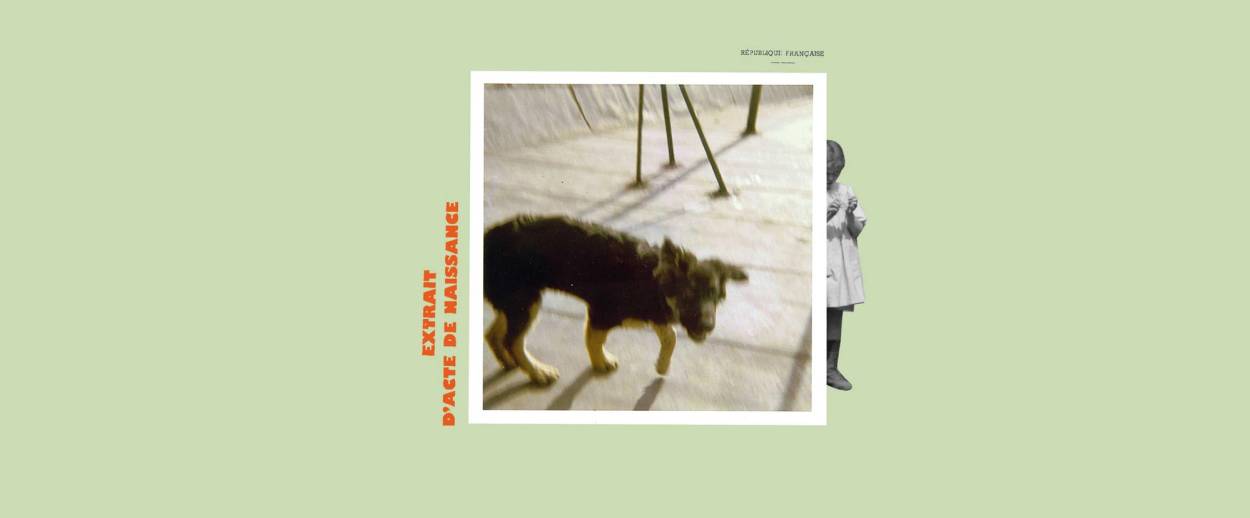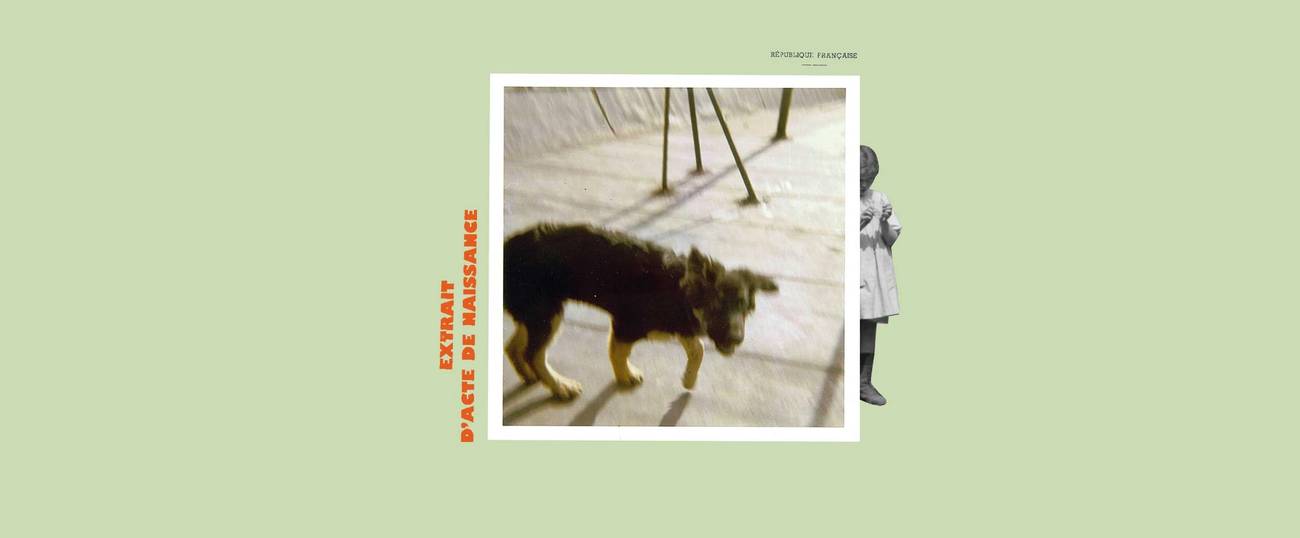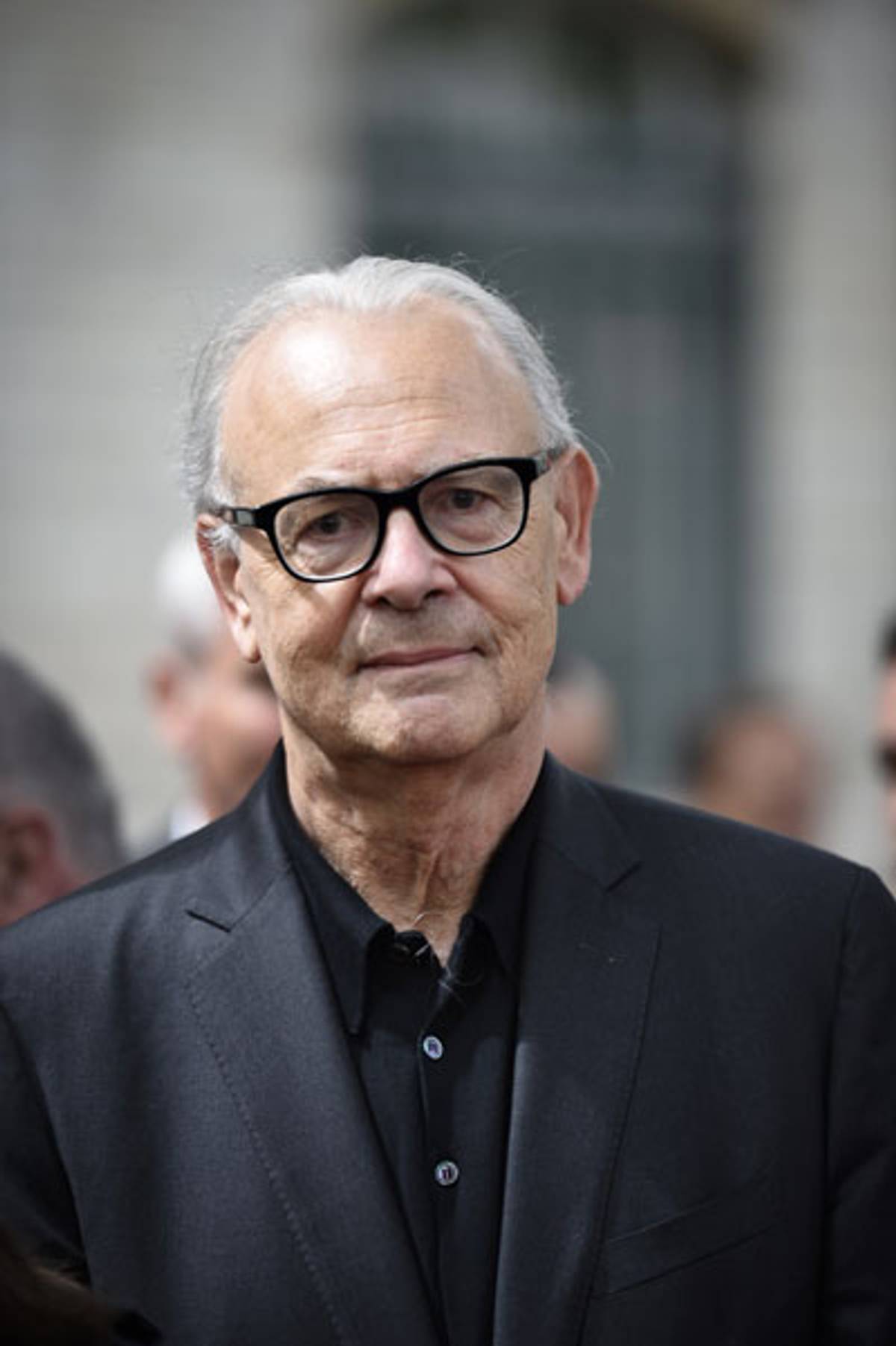The Jewish Half-Lives of Patrick Modiano
The Nobel laureate on the paper trail of evanescent French Jews, in ‘Family Record’




The French writer Patrick Modiano—who, until he won the Nobel Prize for literature in 2014, was virtually unknown in the English-speaking world—has been steadily building a curiously consistent oeuvre since the 1970s. His novels, typically slim, quick reads, all share a complex but numinous mythos, one whose tenuous interconnections are threaded together by the streets of Paris, which his misty narrators wander, running into old flames and acquaintances and taking note of phone numbers and addresses and the names of bars, cafés, and nightclubs. Obsessed as they are with petty gangsterism and the coolly committed crime, these murky tales of loss and memory, suffused with a cosmopolitan tristesse, feel reminiscent of the films of the French nouvelle vague.

Although the lion’s share of Modiano’s reputation rests on the novels he produced in the 1980s and 1990s, the new millennium has seen his focus turn to nonfiction and autobiography. Dora Bruder, for instance, recounts Modiano’s attempts to trace, through faulty archives and weathered newspaper clippings, the fate of a young girl almost certainly lost to the Holocaust, while Pedigree, a relatively unclouded memoir, describes his life up to the age of 21, focusing on his troubled, detached relationship with his parents. With this turn has come a renewed interest, on Modiano’s part, in his own Jewishness, which is often lost in discussions of his work, although the lacuna isn’t exactly without reason. Modiano’s father, descended from a Greek Sephardic family, narrowly avoided being deported to a concentration camp in 1942—his refusal, in his later years, to speak of this period in his life was partly responsible for Modiano’s fascination with the void of memory created by the period of the French Occupation.
Pedigree, published in 2004, isn’t so much a soul-searching reckoning with Modiano’s Jewishness as it is a tabulation of absence. On the first page, Modiano states the year his father was born, the square where he came into existence, and even the square’s position relative to the 9th and 10th arrondissements, doing so in the same objective tone with which, later, he notes that four of his father’s cousins were murdered by the SS on Lake Maggiore in 1943. Modiano’s profound reluctance, in these passages and throughout Pedigree, to go beyond a clear statement of the facts turns out to be central to his late concerns, which revolve increasingly around the question of how to relate to his Jewishness. When he writes, in Pedigree, that he was born “to a Jewish man and a Flemish woman,” he’s quick to addend a frank admission: “I write ‘Jewish’ without really knowing what the word meant to my father, and because at the time it was what appeared on the identity papers.”
In Modiano’s later novels, Jewishness emerges more and more as a source of the rootlessness that so often afflicts his characters. Family Record, which stands as a capstone to this trend, presents a discursive take on Modiano’s past, composed as it is of a series of vignettes that touch on his parents’ stormy courtship in occupied Paris, an affair with a nightclub singer, a brief friendship with Egypt’s deposed King Farouk, and other vivid set pieces. An odd mélange of fiction and memoir (translated by Mark Polizzotti), it sits uncomfortably in Modiano’s bibliography thanks to its fragmentary structure. Modiano’s most acclaimed works tend to be structured as a single persistent investigation conducted over days, months, and sometimes even years. But the episodic nature of Family Record, while it stands at odds with this method, is in fact a fitting form for Modiano’s latest investigations—in a sense, it’s a roundabout way of casting light on the hidden corners of his identity and the prismatic dimensions of his fractured past.
The book’s first chapter, which details Modiano’s harried attempt to get an official birth certificate for his daughter, sets the tone for the rest of the collection. A sentimental quest for documentation, the chapter also serves as a handy précis of Modiano’s concept of pedigree, a characteristically ill-defined mix of the concrete and verifiable and the fugacious and subjective. While Modiano’s earlier works tend to lean heavily on the former part of the equation, it’s notable that documentation, in itself, isn’t enough to constitute pedigree—it’s only with the addition of one’s personal past, specifically Modiano’s unlimned Jewish heritage, that a pedigree is arrived at. Pedigree is, in essence, the resolution of a double rootlessness: on one hand, the generalized rootlessness of the French demimonde, which Modiano’s parents move through and which afflicts even his non-Jewish characters; on the other hand, the rootlessness of the wartime Jewish diaspora, which obscures his family history and augments the first type of rootlessness.
The anxieties of documentation are of course an old theme of Modiano’s, with the lack of proper registration typically condemning his characters to a state of perpetual, dissolute exile, but in Family Record they take on a personal weight. Once Modiano, along with the help of Jean Koromindé, an old acquaintance of his father, succeeds in registering his daughter’s birth, the pair breathe a sigh of relief. The newborn, Modiano reflects, “had obtained the mysterious possession that had always eluded us: a civil status.” His daughter is connected, at one and the same time, to the sphere of ordered society, and to a specific heritage, however truncated it might be.
Family Record is concerned with quieter disappearances, with lives that simply trail off—it’s not fate that attracts Modiano’s pen, but mere presence.
Modiano’s interest in characters living on the margins of society—grifters, chanteuses, black marketeers and petty thieves, all the standard habitués of the twilit world of the demimonde—is on full display in Family Record, but what’s new is the dispatch with which these notes from the margins have been dashed off. The book’s 15 chapters, for the most part, have the air of snapshots, attempts to reckon obliquely with the large-scale disruptions of war. Personal tragedy, in this curtailed form, becomes a matter of incident, of momentary encounters and unexplained asides. Modiano’s investigations of the Jewish experience of the Occupation period and the postwar years are slight, taking the form of sudden intrusions, evidence of an undercurrent, a disappeared and private history.
At one point, Modiano is hired to adapt a short novel for the screen. The film’s director, Georges Rollner, gives him free rein, and asks only that he be sure to insert a single sentence somewhere in the screenplay: “One can be Jewish and still be a flying ace, mister.” As the production progresses, the line seems to be the only thing Rollner cares about; when the production wraps up, Rollner admits that the film is terrible, but insists his work is finished: “I said all I had to say in this film. All of it.”
What, in the end, do we know about Rollner? Almost nothing. Rather than offering any insight into Rollner’s past, his monomaniacal insistence on vindicating Jewish pilots actually ends up obscuring his personal history, while at the same time gesturing at an intensely lived past that, while inaccessible in its details, is undeniably there.
Facts have always had a basic testimonial function in Modiano’s work. The surfeit of street names and dates and phone numbers are one way of pinning reality down, of verifying that the world through which his shady characters move existed. It’s no coincidence that Family Record, where the reach of testimony is expanded, features a preponderance of Jewish characters, with many of the vignettes circling around the fates of minor Jewish exiles. Unlike the works of W.G. Sebald, however, whose novel-in-parts The Emigrants relates four tales of climactic dissolution, Family Record is concerned with quieter disappearances, with lives that simply trail off—it’s not fate that attracts Modiano’s pen, but mere presence.
Browsing through a bookstore in October of 1973, Modiano overhears on the radio the announcement of the Yom Kippur War. He leaves the bookstore and stops at a nearby café, whose only other patron, an older gentleman in an outdated overcoat, slumps over dead at his table. At the police station, Modiano learns that the deceased’s name was André Bourlagoff, and that he’d been born into a well-heeled family in St. Petersburg but had been a French citizen since 1934. His job consisted of retrieving rented tape recorders that hadn’t been returned on time. At only five pages, the tale of André Bourlagoff is a saga of insignificance, of a life of quiet disruption that Modiano pointedly contrasts with the world-historical Yom Kippur War. In its fleetness and irresolution, the chapter is fundamentally testimonial—a simple registering of being.
Unsurprisingly, many of the vignettes in Family Record read like hesitant études, or exercises in style; their exuberant fictiveness is connected, in part, to the collection’s interest in the failures of documentation. When Modiano takes up with a woman named Denise Dressel, the daughter of a trapeze artist who hasn’t been heard from in years, there’s an unexpected poignancy in the premise—the narrator’s love for Denise Dressel can only continue so long as he works away at a biography of her father, an impossible task, given the lack of biographical information, and one which he increasingly has to supplement with invention. Visiting a kennel where Denise and her father had once bought a dog together, Modiano finds that the owner, “a sentimental fellow, had kept copies of the pedigrees and a small identity photo of every dog he had sold over the past forty years.” It would be hard to come up with an irony more characteristic of Modiano’s work—the dream of a perfect archive is reserved not for man, but for man’s best friend.
The longest chapter in the book recounts Modiano’s time spent as a French teacher in Lausanne. Swiss neutrality, a life-preserver that so many of the characters in Family Record latch onto, is transformed into a haze of post-adolescent far niente. At night, Modiano listens to a radio program hosted by Robert Gerbauld, and begins to suspect the host, a sentimental lover of de Falla, is in fact the interrogator who had questioned his father years before at the headquarters of the Jewish Affairs Police during one of the elder Modiano’s several close calls with deportation. “I knew his pedigree,” Modiano thinks. “Unremarkable small-time lawyer before the war, then local councilor; he had added a nobiliary ‘de’ to his name and founded the Anti-Jewish Rally.” In the end, Modiano backs out of the confrontation he’d planned with Gerbauld, suspecting that the ex-interrogator’s past “would mean nothing to him anymore.” Modiano’s painstaking research evanesces, suddenly, just at the moment it might be put to use, and the act of vengeance is halted.
The great irony of Modiano’s search for a pedigree is that, without the Occupation and “the random, incongruous meetings it had brought about it, [he] would never have been born.” Some version of this line has appeared in several of his recent works, but it’s never seemed so deeply felt. As Family Record shows, the thousand miracles of happenstance that conspired to bring about his birth are no less a product of the general displacements of war than they are of wartime Jewish expulsions—we only have to think of his mother’s first film role in a Jewish-led production which was disrupted by the German invasion of Belgium, or the fact that his parents met in the Paris apartment of “a German Jew living there under an assumed identity.”
Modiano’s own pedigree, as it turns out, is as misty and unreal as the untraceable lives he’s set himself the task of describing. But perhaps, as Family Record seems to suggest, description is enough.
***
Like this article? Sign up for our Daily Digest to get Tablet magazine’s new content in your inbox each morning.
Bailey Trela is a writer living in Brooklyn. His work has appeared or is forthcoming in Full Stop, Harvard Review, and The Threepenny Review.